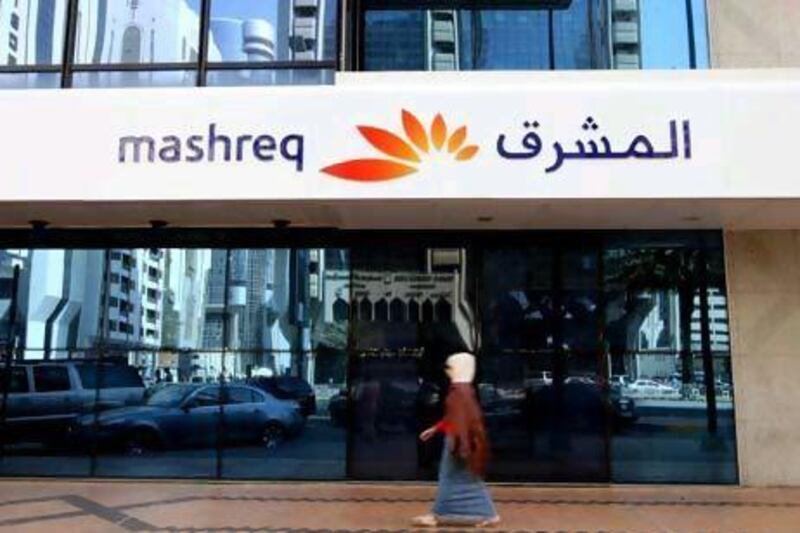Dubai's banks are displaying increased optimism and putting less money aside for defaulting debtors as they posthigher earnings for the first quarter of the year.
Yesterday, Mashreq and Commercial Bank of Dubai joined Emirates NBD in reporting an increase in profits for the tumultuous opening months of this year, when Dubai's lenders largely shrugged off the ill-effects of unrest, revolutions and civil war elsewhere in the Middle East.
Giyas Gokkent, the chief economist at National Bank of Abu Dhabi, said the positive results across the emirate reflected an outlook for banks that was "more positive than not". "The gut feeling in the banking system is that yes, there is improvement and a pick-up in economic activity overall, but there are still challenges."
Easy lending by banks before the global financial crisis led to balance sheets with large numbers of bad debts once the bubble burst. Since then, disclosures of hidden debts have impaired forecasts for the banking sectors.
Mashreq posted profits for the first quarter of Dh265.3 million (US$72.2m), a 5.7 per cent increase on the same period a year ago. Net interest income and deposit levels declined, but a decrease in provisions of 32.8 per cent to Dh325.3m helped propel the bank to higher results.
Its rival Commercial Bank of Dubai reported profits of Dh263.2m for the quarter, a 2.1 per cent increase on the corresponding period last year. The bank surpassed estimates from analysts, who had expected profits of Dh230m for the quarter, according to Bloomberg News. The profits were driven by a decrease in provisions for impairments, which fell 19.4 per cent to Dh76.1m.
But analysts said the results may be difficult for the bank to repeat.
"The annualised loan loss charge off-rate stood at just 0.9 per cent of gross loans, a low level for UAE banks, and we do not think we can extrapolate this low level into the next few quarters," said Jaap Meijer, a financial analyst at Alembic HC Securities.
However, other analysts noted that coverage ratios at UAE banks still had room to rise in the year ahead.
Emirates NBD and Mashreq are said to be among those involved in restructuring talks at Dubai Group, a financial services investment company owned by Dubai Holding, which recently revealed that liabilities under restructuring account for $10 billion, $4bn more than previously disclosed.
On Tuesday, Emirates NBD, Dubai's biggest lender by total assets, reported a marginal increase in non-performing loans to 10.4 per cent of the bank's loan book.
"We're pretty comfortable that we have line-of-sight on where our credit book is and who the big names are that we need to look at," said Surya Subramanian, the bank's chief financial officer. "We've taken portfolio provisions way above the Central Bank requirements."
But impairment allowances of Dh1.36bn were sufficient to push operating profits down 92.6 per cent to Dh83m for the quarter.
Meanwhile, Barclays Bank reported profits for the first quarter of £1.01bn (Dh6.14bn), a decrease of 5 per cent on the same period a year ago.
The bank's income from the Middle East slid 21.6 per cent to £76m.
Its operations in Egypt were affected during the quarter, with branches damaged by protesters during the country's revolution.





